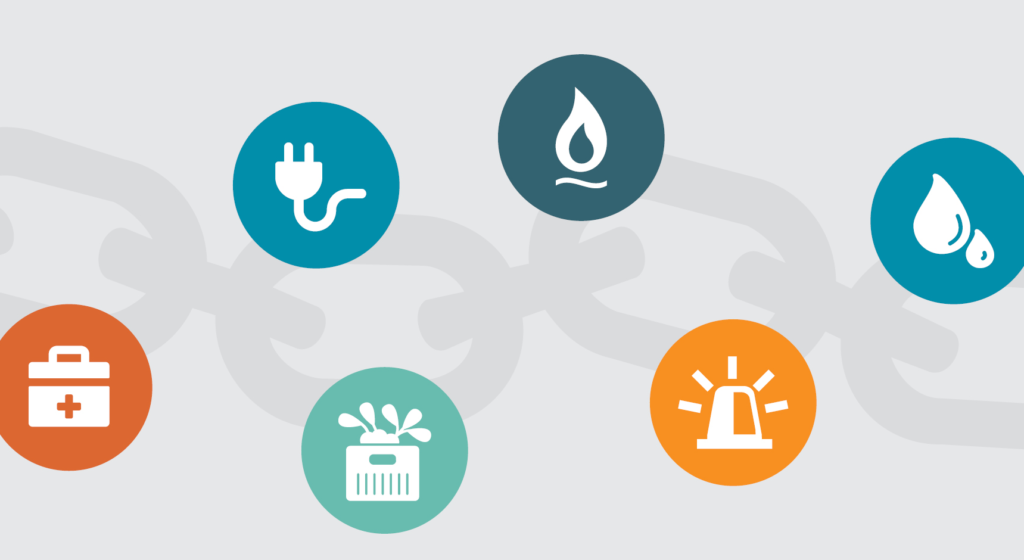As the COVID-19 outbreak swept the globe in early 2020, putting people out of work as factories were shut down and national economies were paralyzed for weeks at a time, governments and key industries, hospitals, and residents began experiencing shortages of critical goods and supplies at a scale they had never felt before.
The COVID-19 pandemic’s impact on supply chains extends far beyond protective gear and hand sanitizer. A full 75% of U.S. companies have reported supply chain interruptions due to the COVID-19 pandemic.
Given that California imports more than 70% of its oil, the state’s energy supply chain is more at risk from disruption. After all, just last year conflict in the Middle East – the origin of more than a third of the oil California uses every day – interrupted supplies and threatened major price shocks. While California makes up just 13% of the U.S. population, it consumes more than 40% of the country’s oil imports, leaving the state’s consumers and businesses overly dependent on an unreliable foreign oil supply chain instead of sustainably producing more oil locally.
Fortunately, the Golden State has not faced shortages of diesel fuel, natural gas, or electricity during the pandemic, so Californians staying at home have continued to receive deliveries of food, water, power and communications. However, as we’ve seen in California’s widespread power outages, we can’t count on either a single source of energy or distant interstate and international supply lines in the next crisis. Californians should benefit from the full diversity of its locally produced energy.
In light of the COVID-19 pandemic’s impact on vulnerable supply chains, some industries have begun taking proactive steps to protect against future interruptions. As CNBC recently reported:
“Lawmakers concerned about possible drug shortages amid the coronavirus outbreak are pressing pharmaceutical companies to bring manufacturing to the U.S. … About 72% of manufacturers of pharmaceutical ingredients supplying the U.S. are overseas. That could make U.S drug companies vulnerable to shortages if COVID-19 forces factories to shutter and shipments to the United States to stall, experts have warned.”
In fact, after decades of pharmaceutical manufacturers moving production out of the United States, 90% of the active ingredients (manufactured “precursors”) used by U.S. drugmakers now come from China. A New York Post editorial stated bluntly that the COVID-19 pandemic has “exposed the nation’s serious over-reliance on China for pharmaceutical production” and “the Food and Drug Administration fears a shortage of widely used generic drugs.”
Just as the pharmaceutical industry is concerned about an overwhelming reliance on China for key ingredients, so too should Californians be alarmed about relying so heavily on foreign oil imports for energy needs that are critical to the COVID response as well as normal everyday life.
Despite having massive local energy reserves and the strongest environmental and public health protections on production operations in the world, California chooses to limit in-state production and instead depend on foreign governments halfway around the world to provide for the basic needs of its 40 million residents.
This dependence unnecessarily puts the California economy and consumer at risk, leaving the critical energy supply chain vulnerable to disruptions from outside dynamics the state cannot control, including conflict, geopolitical instability, embargoes, price spikes, supertanker accidents, trade route interruptions and – yes – pandemics.
California must support local oil and gas production to secure a greater share of the energy it needs every day. We must prepare for the next crisis and be able to protect residents across the Golden State.


